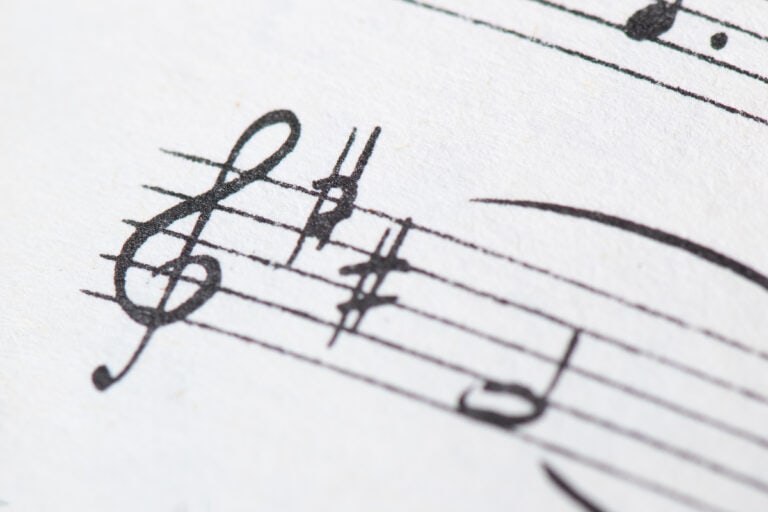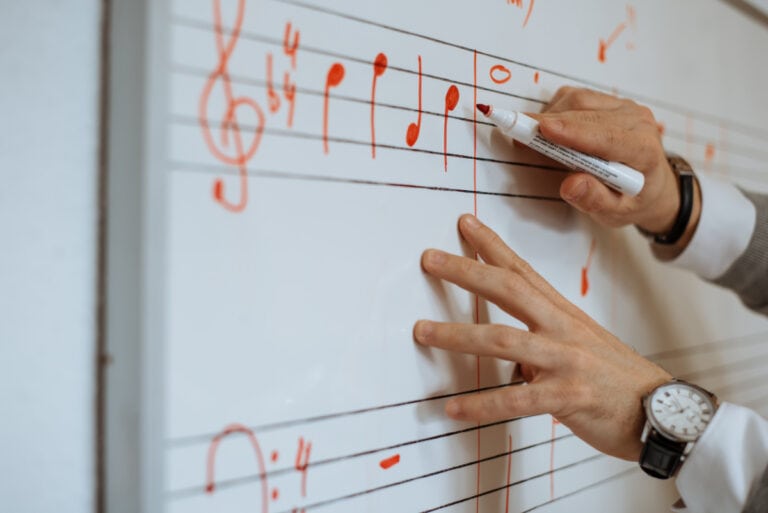The importance of selecting music for liturgy cannot be overstated. The responsibility of choosing the music for a community’s sung prayer is far more than just selecting favorite songs. The music we choose is formative, just as any homily is formative. Each song’s text resonates within people’s hearts and minds for hours or even days beyond when they were sung at worship, thus molding and shaping our faith. So just how do we select the best music for our communal sung prayer? Are there rules or guidelines to which we should adhere? How do we know when our music selections are hitting the mark?
Please note: this article will NOT cover everything we need to know about planning music for liturgy, for the topic is far too broad for a short article to cover.
Important Planning Resources
There are two extremely important documents that we must thoroughly know if we are to plan music for liturgy well.
The first is The General Instruction of the Roman Missal. This is the official instruction on the Mass for the universal church. In essence, it is the introduction to the Roman Missal itself and can be found on the USCCB website or purchased separately. This document explores important information about the liturgy, including the complete structure of the Mass.
The second necessary resource is Sing to the Lord: Music in Divine Worship. This USCCB document was approved by the bishops in 2007 and then updated to conform to the Roman Missal. It explores the various musical elements of the liturgy, including the Three Judgements (more on these below) that specify the qualities of “good” liturgical music.
These two documents are available free online and are a must read for those of us who plan music for liturgy.
Many publishers of liturgical music also offer planning guides that provide song suggestions for each of the weekend liturgies throughout the liturgical year. Depending on the hymnal resource, these planning guides can assist in creating a pool of songs from which to choose.
Plan from The Readings of the Day
The scripture readings assigned to each Sunday of the liturgical year offers the best direct informational source for planning music. The First Reading and Gospel are most often thematically paired, while the Second Reading from the New Testament Epistles is usually cyclical; thus, our planning should focus more on the First Reading and Gospel Reading. We can use the thematic content of these readings as an inspirational source for our music selections.
Other Considerations for Planning Music for Liturgy
Here are a few other ideas to consider when planning music for liturgy.
Keep a record of music selected for liturgies each year.
Because our liturgies occur within a three-year cycle, we can draw upon the wisdom of what was chosen three years prior. While simply using exactly what was used three years ago is not prudent, it can provide some insight into what may work in the present and can also help prevent the overuse of certain selections (which leads us to our next point…)
Don’t overuse certain selections.
It’s easy to overuse selections that the community enjoys. Overusing a piece may ultimately cause the community to dislike or become tired of the piece.
Stay away from planning your favorite songs.
The music we sing at liturgy belongs to the community, and while we’re a part of the community, selecting only the songs we like robs the community of a fuller musical experience. Also, don’t steer away from selecting music that we don’t like – just because a particular song is not our favorite doesn’t mean that others don’t like it.
Offer a culturally and stylistically diverse repertoire.
Offering music in different musical styles will ensure that everyone gathered sings something with which they will connect.
Be sure the music selected is “good” music as determined by the Three Judgements from Sing to the Lord.
Our selected music must work well for the particular part of the liturgy, must be theologically suitable, and must be appropriately influenced by the pastoral concerns of the community. Let the Three Judgements help develop our musical repertoire.
Occasionally, choose music that includes different languages than the dominant language of the community.
This can be easily accomplished when selecting an Alleluia or a response for our Universal Prayer. Singing music in different languages reminds us of the universality of our Church. It can also help those who speak another language feel more connected with the rest of the community.
If possible, create a small team of people who are willing to plan music together.
In the area of selecting music, the value of a team approach can be powerful. Just bringing together different ideas and suggestions, driven by our different interpretations of scripture, is extremely valuable. Team members might find the perfect song that you missed. While planning as a team may add some time needed to plan, the collective wisdom of the team will surely positively influence our musical choices.
If possible, the music used should be the same across all our weekend liturgies.
Using the same music ensures that our entire community has the same musical experience week to week. This helps build the community’s common repertoire and respects those who are not locked into the same mass slot each week.
The Measure of Success
How do we know when we’re hitting the mark in planning music for liturgy? The real success of the effectiveness of our planning lies within how well our community sings. Is the sung prayer vibrant? If yes, then we’re likely doing well in our planning.
May the music in all our communities allow for a truly beautiful and meaningful worship of God!
Written by Steve Petrunak. Copyright (C) 2022, Catholic Liturgical Ensemble Formation.



